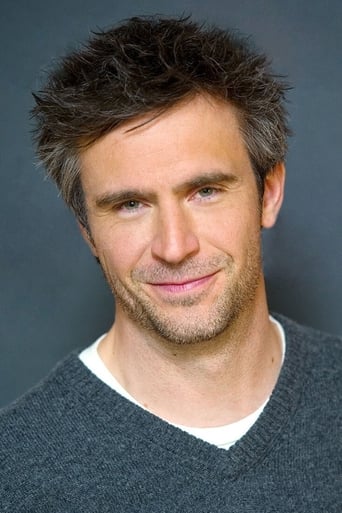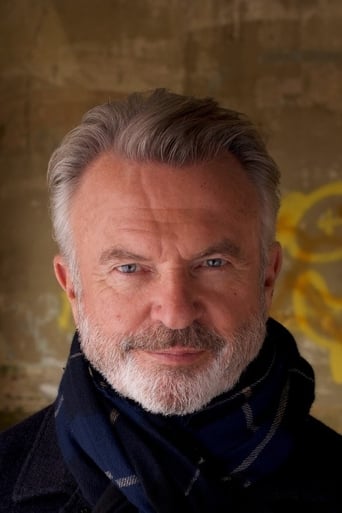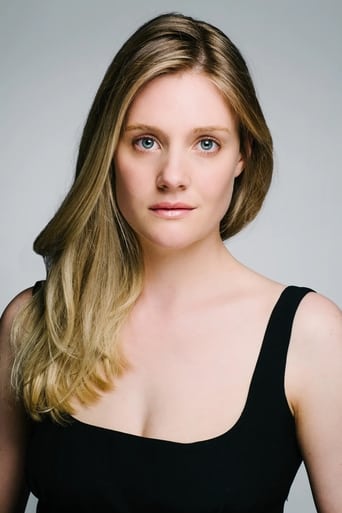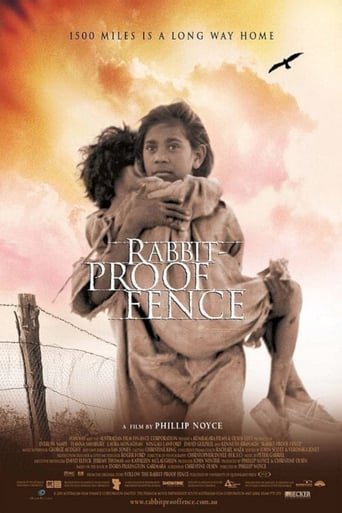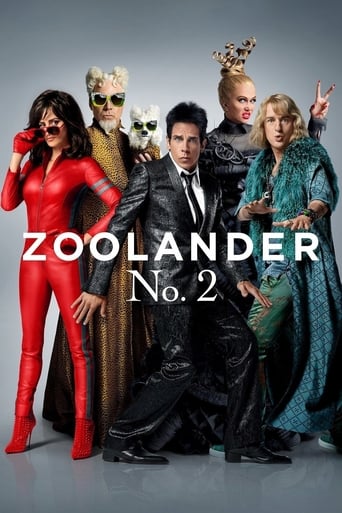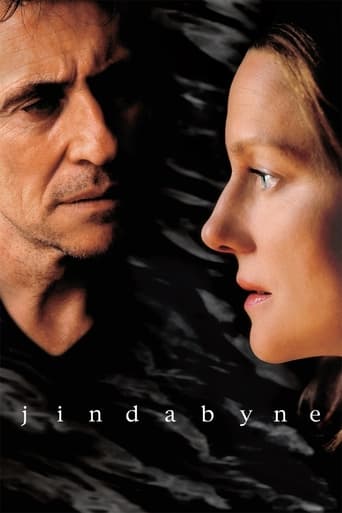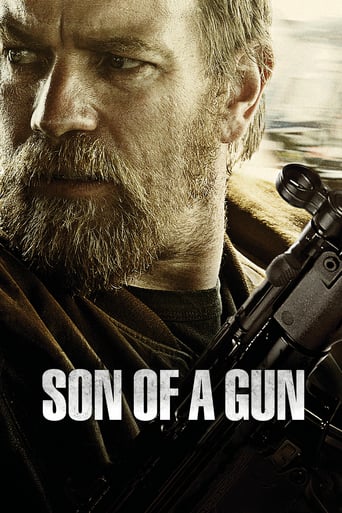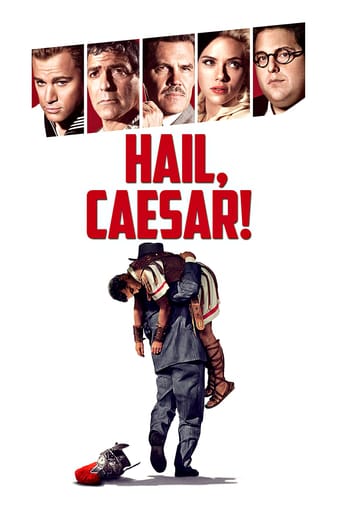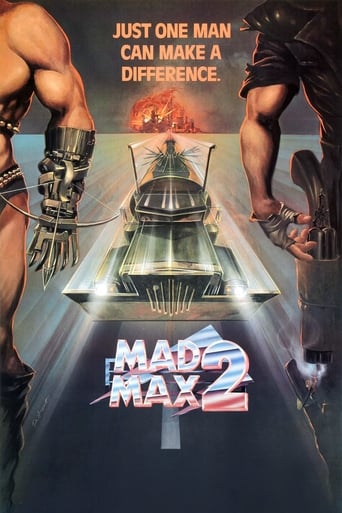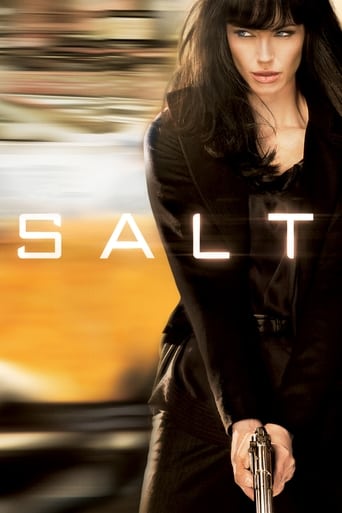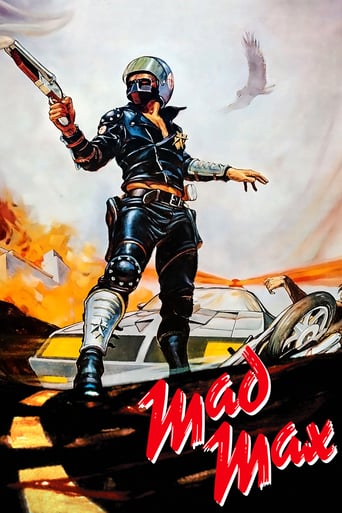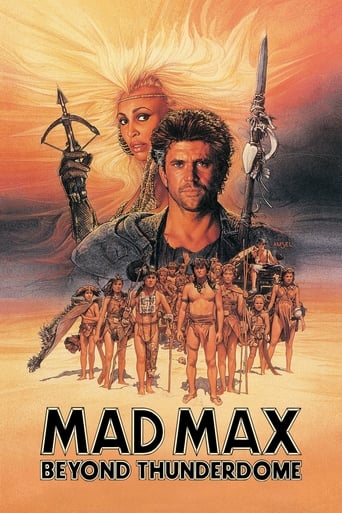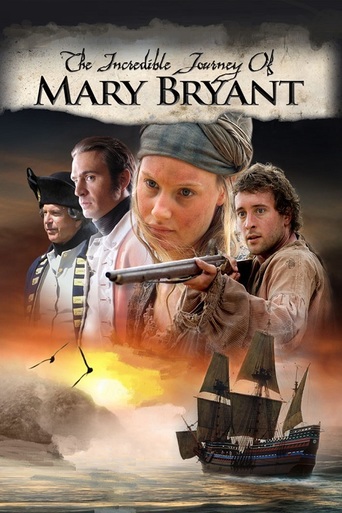

The Incredible Journey of Mary Bryant (2005)
A young woman is transported to the New South Wales penal colony in 1788.
Watch Trailer
Cast


Similar titles
Reviews
Watching this again after first seeing the mini-series on TV a few years back, I am again left stunned by "Mary Bryant". It has to be one of the best productions to have ever come out of Australia. Based on the true story of a female convict who escaped the harsh penal colony in the 1700's, this is an absorbing, well-acted work.Romola Garai turns in her best performance thus far as Mary Bryant. Garai makes Mary alternately fascinating, infuriating, gutsy, heartless, direct and selfless. The film opens with Mary Bryant, nee Broad, running along the Cornwall coastline (actually Kiama, NSW), with voice-over from Garai. Born of a fishing family, Mary is 17, wild, independent-minded and starving. Convicted of theft, she is transported to Botany Bay. In the opening five minutes, the three protagonists are effortlessly produced. Garai boards the ship, and the camera pans to fellow convict, the laughing, handsome Will Bryant (Alex O'Loughlin), who will become Mary's husband and soul mate. We then cut to Lt Ralph Clarke (Jack Davenport), the man who will be passionately, obsessively in love with her, and will stop at no lengths to have her at his side.Davenport's Clarke is, for me, the most interesting part of this excellent production. He gives a wonderful performance as the strict soldier who will order a ferocious whipping or hanging then tenderly caress Mary's face. The film is cut and shot in a way that actually makes us sympathize, and associate Mary more with Clarke than her husband. Garai and Davenport share a volatile chemistry in these scenes, and the viewer is torn between Mary's determination to have the best for her struggling family and her use of Clarke as merely a sexual tool for her to get the key to the supply room for their daring escape. When they meet again on the beaches of Timor, the confrontation is surely one of the most emotionally moments I have yet seen. And, later, emotion does not get any rawer than Garai's speech in the courtroom back in England.
The story starts with Mary running up the grassy hill in her town of Cornwall (We see nothing but grassy hills, no town no people just Mary running). The story ends with her returning to that same hill only walking downward and again we see no town, no people just her, but wait was that a small house way in the distance on both beginning and end ? What I am saying i that it would have been nice to identify where she came from even if it was a small house it would have been nice to at least see it! Other then that the movie was as close to flawless as movies get. Someone eluded to the historical references in the movie as being incorrect. I am not a historian so I will overlook that since I am commenting on the movie itself. The deaths in the movie were probably as near to the way a real life story would play out where the heroic and innocent die while lesser people live. (After all that is real life isn't it!) Some people make reference that this movie was good for an Australian production. I will say that this movie is great no matter what country you put it up against or what budget you put it up against! I may render to say that this is the best movie I have seen period!
'The Incredible Journey of Mary Bryant' tells the breathtaking tale of Cornish convict Mary Bryant (Romola Garai), convicted for stealing a bonnet and bread and sentenced to England's new Colony on the other side of the world in Australia. Mary, who had never been more than 5 miles outside of her village, made the journey with the first fleet in 1787, on the boat commanded by Captain Clarke (Jack Davenport). Clarke has a vision of reform for the convicts, an idea which clashes with the beliefs of Governor Arthur Phillip (Sam Neill) who sees no hope for England's trash. Clarke has particular hope for the wide-eyed angelic Mary; raped while in jail in England, Mary was pregnant during the voyage and the birth of her baby girl in the horrendous conditions of the boats is miraculous in itself, but Mary's journey doesn't end there. Arriving at the new colony in New South Wales in 1788 Mary marries Will Bryant, another Cornish convict they and other newly-wed convicts reap the benefits of their marriage as they are granted permission to build a house. Mary and other female convicts are outnumbered by the men 5:1, a gory scene of rape, pillage and plunder harshly depicts exactly how terrible the colonies conditions were for the women of 1788. Not only that, but water is scarce and crops do not grow in the poor soil. Mary, now with 2 children, proposes a plan with her husband to escape from the island prison, by stealing the colonies cutter boat and sailing 4 thousand miles to Timor with 5 other male convicts. But, as Governor Phillip exclaims; "the burden of carrying a woman, and children, no - even if they survive the sea, they'll never survive each other" so begins Mary's truly incredible and heart-breaking journey.This is a truly spectacular Australian mini-series, and no surprise since it had a budget in excess of $15 million and is the largest television mini-series ever made in Australia. Directed by Peter Andrikidis and shot over 12 weeks in 22 locations, 'Mary Bryant' is a real accomplishment. The sets are spectacular; from the claustrophobic, sickening hull of the convict ships, to the stifling and scorching colony; every set perfectly evokes the atmosphere of the times and adds to the grandeur of the mini, aided with the beautiful music score of Iva Davies. Of course 'Mary Bryant' isn't always historically accurate, but it's practically impossible for it to be; there are few records of the first fleet's journey and following the events depicted in this mini, Mary Bryant all but vanished from the face of the earth. And despite Mary and Clarke being on the same ship in the first fleet, there is no evidence that they ever had a tumultuous love affair. But where there were plot-holes in history, writer Peter Berry adequately fills in angst-ridden characters and suspenseful plot.The characters for this larger than life tale are perfectly cast. Romola Garai stars in her first epic role but is no stranger to period pieces; having starred in 'Nicholas Nickelby' and 'Vanity Fair'. Despite Garai's milk skin and doe eyes, she brings sharpness to Mary's strong-willed character; sometimes you resent her, but Garai knows when to make you sympathize and warm to her, and you do. Alex O'Lachlan is a NIDA graduate and his character of Mary's husband, Will is his first big role. He has charm and like Garai, can evoke feelings of bitterness towards the character which gives Will more depth. Jack Davenport rounds out the major leads as Captain Clarke; like O'Lachlan and Garai, Davenport portrays a complicated and multi-faceted character. We see tender moments of real love on Clarke's behalf when Mary seduces him as apart of her plan to escape; one criticism may be that the storyline and lengthy character development between Mary and Clarke means that the audience sees more reason for Mary to be with him, rather than Will. Just as quickly Davenport evokes bitter resentment as Clarke's obsession with Mary destroys and devastates. Even the minor characters deserve praise; Abe Forsythe's innocent charm and adorable looks stir sympathy as Sam, and Sam Neill's stony demeanor perfectly suits for the unsympathetic Governor Phillip assigned the almost impossible task of creating a new society on the barren Australian land.This is a truly spectacular Australian mini-series, an accomplishment on all fronts, and what makes it truly amazing is it's derived from a true story.
In shades of blue the story begins with Mary Broad (Romola Garai) running from the law after stealing a bonnet through the bleak English landscape. For her crime she is sent to Botany Bay as a convict on the First Fleet and it is on this journey that the story begins. It is here she meets the British Naval Officer Clarke (Jack Davenport) and William Bryant (Alex O'Loughlin), whom she later marries. Garai (as always) is mesmerizing as the desperate Mary Bryant, with an indomitable will to protect the futures of her children from poverty at all costs. The determination of this character is supported with strong performances from O'Loughlin and Davenport. But it is Alex O'Loughlin who remains, in my mind, a stand out. He is truly captivating as William Bryant, a man that is quietly unsure of him self. He is to a degree searching for self validation in the most masculine sense but this is somewhat complicated by living his determined and strong willed wife Mary. Directed by Peter Andrikidis (who also directed the Australian two part movie 'Jessica'), there has in many ways, never been a more confronting imagery presented on Australian screens. Particularly the scene whereby Andrikidis captures the terror and brutality reaped on the women convicts by the men while the British Officers passively look on. Trust me when I say that the poignancy of this scene will stay with you forever! Acting to dispel any romanticized ideals (and we all have at some time or another) of early settler life in Australia, especially for women.Despite these accolades there is something amiss in this account of Mary Bryant's story which I can not exactly pin point. Perhaps it could be something of a naivety in Garai's portrayal, an innocence which acts to unintentionally undermine the veracity of Mary Bryant. Or maybe it is Sam Neil (who I think was better left at Jurassic Park!) as a Governor Phillip that fails to evoke any real emotion within the audience towards his character. At the same time there is this sense that the story was cut short before it was ready. There is not real detail into Mary's trail when she returns to England, despite is importance to the story. It almost seems as though the producers got to the end, ran out of money (which would not be surprising considering the current state of the Australian Film Industry!) and had to rush the ending, leaving the audience feeling somewhat let down.Yet, while there is faults in this interpretation (lets not forget the pearly whites of our convicts, a very unlikely depiction!) there is no doubt in my mind that it is worth seeing. In reality it is as much an English story as it is Australian. So if you're looking for some great performances and want to enjoy a great story of, love, betrayal and determination, Mary Bryant is well worth watching!


